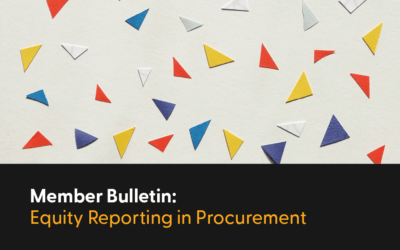MENTAL HEALTH RESOURCE
By the ACEC-BC Equity, Diversity, and Inclusion Committee
Prior to the beginning of the pandemic, employers were starting to understand and respond to the prevalence of mental health challenges in the workplace. Over the last few years, in response to the pandemic and the resulting changes to the workplace, there has been an increased emphasis on the need to support employee mental health.
The purpose of this guide is to provide Employers and Employees with mental health resources for the workplace. The resource provides an overview from the employer, manager, peer, and self-care perspectives.
Mental Health
Mental health is a person’s emotional and psychological well-being. It encompasses emotional stability, coping abilities, and social interactions. Mental health greatly impacts an individual’s thoughts, emotions, and behavior, affecting relationships and overall quality of life. Just like physical health, it requires attention and support.
It is important to understand that everyone (employers, managers, employees) has a role to play in supporting mental wellbeing.
Employers
Over the past few years, the ways in which, and places where employees work have changed drastically. No longer is it the norm to have all team members in the office and many have not returned to working in the office full time. There are employees who now work in a remote or hybrid work environment. These flexible work options have many benefits, but they also necessitate different approaches to fostering healthy environments as well as different approaches to identifying and addressing mental health related concerns.
Recognizing and supporting mental health in the workplace is essential for employers. Good mental health directly influences an employee’s well-being, reduces stress, and enhances productivity. A supportive work environment fosters collaboration, leading to higher job satisfaction and lower turnover. Prioritizing mental health demonstrates a commitment to employee wellbeing and helps foster a safe and healthy work environment.
As a leader, supporting employee mental wellness can be achieved by ensuring appropriate supports are in place and communicating resources and supports available. Being proactive in providing support and resources will help both you, as the employer, and your employees, manage and find ways to address mental health challenges when they arise.
Existing programs and policies should be reviewed to assess relevance and identify any adjustments that may be required to fit with the new ways that our teams work – no longer just in person, but also remote or hybrid work environments.
Some suggested questions to ask when developing and reviewing practices/policies are:
- What adjustments need to be made to ensure managers and employees are given enough time to connect and check in on a regular basis?
- How will the organization address workplace factors that affect mental health?
- Do you address workplace factors differently for those in a hybrid or remote work arrangement?
- Are there additional policies or guidelines that need to be put in place as a response to the remote/hybrid work environment that will directly or indirectly support employee mental wellness?
- Does the organization have programs and resources that can assist employees such as:
- An employee assistance program (EAP)
- Respect in the workplace policies (antiharassment, bullying, violence & discrimination)
- Paid sick time
- Disability coverage accompanied by gradual return to work programs
- Health and safety systems
- Wellness programs
Managers
Effective managers require many skills to help keep their staff engaged, focused and productive. Some of the most effective managers are genuinely empathic, trust-worthy, informed and communicative. They also take the time to establish relationships with and make a habit of effectively recognizing employees.
In recent years, factors that are reported to contribute to team members being disengaged or struggling with mental health issues include:
- Feeling isolated
- Being overworked
- Feeling a lack of connection to the work team
- Having difficulty getting organized and motivated
- Having trouble staying on task and/or meeting deliverables
- Anxious about personal and situational uncertainty
- Dealing with financial concerns
As a Manager or Supervisor, it is important that you look for and act on any warning signs that indicate an employee is struggling with mental health issues. It is also important that you know what resources your organization has in place to address workplace mental health issues.
Some warning signs you may notice, or others may report to you, that could indicate possible mental health issues include:
- Consistent tardiness or frequent absences from schedule meetings
- Signs of fatigue and/or lack of focus
- Change of appearance and lack of concern for personal hygiene
- Frequent complaints about ailments
- Unexplained moodiness, emotional and anger outbursts
- Pronounced sadness or depression
- Heightened anxiety
- Difficulty concentrating, making decisions or remembering things
- Sudden difficulty working with colleagues, lack of cooperation
- Missed deadlines due to procrastination
- Decreased productivity
- Working overtime to get simple tasks done
- Major changes in personality
- Extreme highs or lows
- Avoiding friends and social interactions
- Indications of substance dependence or abuse
- Strange ideas or delusions
- Talk about suicide
On their own, or if very infrequent, these symptoms may not indicate a mental health illness. Mental health issues can be connected to factors inside and outside the workplace.
When you start talking to an employee about their well-being, focus on what you or others have observed such as performance concerns, increased absences or tardiness. Remember, you are not a trained professional in mental health, so you are not able to diagnosis their condition nor are you legally able to delve deeply into their health issues. Don’t make the discussion specific to mental illness unless it is addressed by the employee first. Focus instead on what support you or the organization can provide to them. Demonstrate that you care, and that you take the situation seriously and would like to provide support.
As a manager, it is important that you:
- Deal with the issue in a timely fashion
- Allow for adequate time to get to the root of the issue
- Be emphatic not judgmental
- Realize that everyone’s situation is unique
- Treat the matter with the upmost sensitivity, in a private setting and that any notes taken are well secured to ensure private matters remain private and confidential
- Be prepared to provide the employee with a plan to help them
Given the sensitivity of mental health issues, not every employee will want to discuss their personal situations with you. Should the employee not wish to speak to you about any personal issues, focus the conversation only on performance concerns, and provide them with one on- one coaching. Performance conversations should be documented. It is also important to mention that there are resources available to them, including the Human Resources department, any employee assistance program (EAP) the firm may offer and additional resources available, such as those offered by the Canadian Mental Health Association.
Throughout the conversation ensure that you:
- Listen
- Encourage them to consult a medical professional if they have admitted they have a mental health issue
- Share resources
Peer Support
Figuring out how to raise concerns about a co-worker can be difficult. Individuals often hesitate to address incidents and issues in the workplace because they are uncomfortable dealing with sensitive and personal issues, worried they have made a mistake or have misunderstood a situation, or are afraid they will make the situation worse.
Listening to co-workers, both in what they are saying but also in what they are not saying, can help you recognize when they may be struggling. If you recognize a sign that is concerning and are comfortable, you may choose to reach out to your co-worker.
Whether working remotely or in person, this could be done by setting up a call, meeting, or coffee to talk one-on-one. You can also send a short message or stop by their desk to see how they are doing.
It is important to not make assumptions and initially keep the discussion about work. Asking a question like “Are you depressed?” would not be appropriate as it states an assumption about your co-worker’s mental health that could be offensive or embarrassing, even if true. Instead, start with a gesture of support by asking “How are you doing?”, “Is everything all right?”, “Is there anything I can do to help?”, or “I’ve noticed you’ve been (coming online/showing up to work a lot later, distancing yourself from the group chats/office discussions, missing the group check-ins).” If your co-worker feels comfortable sharing with you, you can support them by:
- Listening
- Encouraging them to talk to their manager or Human Resources
- Encouraging them to consult a medical professional to further explore if they have a mental health issue
- Sharing resources
Not everyone may have a relationship with their co-worker where they feel comfortable discussing mental health concerns. In this case, reach out to your manager or human resources team and share your concerns. They can address the concerns in a private manner and access the necessary resources. Reporting is the right decision.
By understanding mental illness and showing compassion, we can create an environment where those that need it can be supported. We’ve all been through stress and uncertainty. Taking time to acknowledge this and being aware of how stress may affect others and ourselves is critical. When we can take care of ourselves and each other, providing support where we can and helping people find the resources they need, we build strength and connection in our organizations. This will create preventative and positive cultures that endure beyond any crisis.
Self Care
Regardless of our role or position on a team, it is important that we each consider our own mental health. Our mental health can be affected by a number of factors inside and outside the workplace.
It is important to understand that each of us are dealing with different situations that affect both our personal and professional lives, which have become more interconnected than ever before.
Some practices of self care include:
- Taking regular breaks
- Participating in regular meetings (to maintain connections and relationships if working remotely)
- Keeping to a schedule
- Having discussions with colleagues about strategies for balancing work
- Disconnecting from work at the end of the day
- Seeking out interaction and connection with your colleagues
- Talking to your manager about challenges you are facing so that you can discuss possible modifications to your workload
However, it might sometimes feel like taking these steps is not enough. And if that’s the case, it’s okay.
You, as an employee, have an obligation to be fit for work and your employer has an obligation to ensure you and your co-workers are able to work safely and productively. If your symptoms are beginning to affect your behaviour, ability to work, your performance of work, or the safety of others, you should seek help.
Some of the common signs that could indicate you are dealing with a mental health issue include:
- Lack of focus
- Procrastination
- Withdrawal
- Difficulty adapting to changes in the workplace
- Uncontrollable anger
- Emotional outbursts
- Lethargy
- Lack of stamina
- Disengagement
- Heightened anxiety
- Extreme and prolonged sadness
- Difficulty following simple instructions
- Absenteeism (missing scheduled teleconferences and other meetings)
- Missed deadlines
- Errors in work
- Declining social (distanced) interaction
There has been a perceived stigma associated with mental health and in some cases, a misconception that mental illness is a result of personal weakness. Although this stigma is being removed over time, it can still make it difficult for individuals to seek the support they need to improve their situation. The reality is that mental illness is not a case of “shaking it off” or “mind over matter”. It’s something that most individuals need support to manage.
Your mental health is your personal and private business, and you have a right to privacy. Understandably, disclosing personal information can cause anxiety, fear, feelings of vulnerability and embarrassment but it is important to seek out and receive the support you need. This includes:
- Reaching out to others to share your concerns and seek support
- Contacting your medical care provider, counsellor, mental health practitioner
- Discussing your condition with your supervisor or manager (or human resources department if you are unable to speak to your manager)
By discussing your condition with your manager, you may be able to work together to find a solution that will improve your mental health. This could include exploring approaches to address specific stresses such as adjusting work hours or changing work responsibilities.
Related News & Resources
Get Started Guide – Indigenous Land Acknowledgment
The ACEC-BC Equity, Diversity, and Inclusion Committee has developed a land acknowledgement guide to support individuals and organizations – providing guidance…
Equity Reporting in Procurement
ACEC-BC members are energized when we collaborate, when our work is innovative, when we invest in our community, and when our words and actions are inclusive. This bulletin is intended to provide foundational information on EDI in procurement to support dialogue between member firms and their clients.
Allyship Practices to Foster Inclusion & Belonging
ACEC-BC’s Equity, Diversity, and Inclusion committee has developed two resources to support members in better understanding allyship. Allyship is the practice of…



